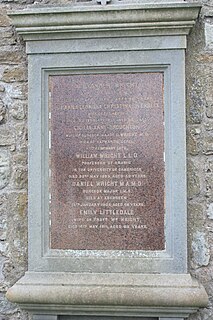 W
WAn Arabist is someone normally from outside the Arab world who specialises in the study of the Arabic language and culture.
 W
WAbu ‘Abd ar-Raḥmān al-Khalīl ibn Aḥmad ibn ‘Amr ibn Tammām al-Farāhīdī al-Zahrāni al-Azdī al-Yaḥmadī, known as Al-Farāhīdī, or Al-Khalīl, was an Arab philologist, lexicographer and leading grammarian of Basra based on Iraq. He is from the Zahran tribe. He made the first dictionary of the Arabic language – and the oldest extant dictionary – Kitab al-'Ayn - "The Source", introduced the now standard harakat system, and was instrumental in the early development of ʿArūḍ, musicology and poetic metre. His linguistic theories influenced the development of Persian, Turkish and Urdu prosody. The "Shining Star" of the Basran school of Arabic grammar, a polymath and scholar, he was a man of genuinely original thought.
 W
WRudolf Ernst Brünnow was a German-American orientalist and philologist.
 W
WFatma El-Zahraa Hussein Fathi, popularly known as Naglaa Fathi, is an Egyptian actress. She started her acting career in 1967 and has played a role in over 80 films. She established a production company and produced films, including Supermarket (1990). The award-winning actress also wrote the screenplay for Tomorrow I Will Exact My Revenge, (1980).
 W
WGyula Germanus, alias Julius Abdulkerim Germanus, was a professor of oriental studies, a Hungarian writer and Islamologist, member of the Hungarian Parliament and member of multiple Arabic academies of science, who made significant contributions to the study of the Arabic language, history of language and cultural history. He was a follower of the famous orientalist, Sir Ármin Vámbéry and became a scholar of world repute.
 W
WKarin Kneissl is an Austrian diplomat, journalist and independent politician, serving as Minister of Foreign Affairs between 2017 and 2019. She is an expert on the Middle East and was a lecturer before assuming the government position she was offered by Chancellor Sebastian Kurz.
 W
WDickran Kouymjian is a writer, publisher, editor, historian and professor.
 W
WThe position of Laudian Professor of Arabic at the University of Oxford was established in 1636 by William Laud, who at the time was Chancellor of the University of Oxford and Archbishop of Canterbury. The first professor was Edward Pococke, who was working as a chaplain in Aleppo in what is now Syria when Laud asked him to return to Oxford to take up the position. Laud's regulations for the professorship required lectures on Arabic grammar and literature to be delivered weekly during university vacations and Lent. He also provided that the professor's lectures were to be attended by all medical students and Bachelors of Arts at the university, although this seems not to have happened since Pococke had few students, despite the provision for non-attenders to be fined. In 1881, a university statute repealed Laud's regulations and provided that the professor was to lecture in "the Arabic, Syriac, and Chaldee Languages", and attached the professorship to a fellowship at St John's College.
 W
WGuy Le Strange was a British Orientalist noted especially for his work in the field of the historical geography of the pre-modern Middle Eastern and Eastern Islamic lands, and his editing of Persian geographical texts. He was a scholar of the Persian, Arabic, and Spanish languages.
 W
WAladdin Malikov is a teacher, Azerbaijanian religion philosopher, Assistant to the President of ANAS. Who works primarily in the fields of philosophy, logic, epistemology, philosophy of religion, history of philosophy, orientalist, and translator. Editor-in-Chief of the International Journal of Metaphysics, Doctor of Philosophy, Associate Professor.
 W
WGeorge Augustus Frederick FitzClarence, 1st Earl of Munster, was an English peer and soldier.
 W
WJonas (Jean) Otter was a Swedish traveler in the Ottoman and Persian Empires, known for his book Voyage en Turquie et en Perse, avec une Relation des Expeditions de Tahmas-Kouli-Khan (1748), based on his ten years in the Middle East.
 W
WMaxime Rodinson was a French Marxist historian, sociologist and orientalist. He was the son of a Russian-Polish clothing trader and his wife, who both died in the Auschwitz concentration camp. After studying oriental languages, he became a professor of Ethiopian (Ge'ez) at EPHE. He was the author of a body of work, including the book Muhammad, a biography of the prophet of Islam.
 W
WWilliam Wright was a famous English Orientalist, and Professor of Arabic in the University of Cambridge. Many of his works on Syriac literature are still in print and of considerable scholarly value, especially the catalogues of the holdings of the British Library and Cambridge University Library. A Grammar of The Arabic Language, often simply known as Wright's Grammar, continues to be a popular book with students of Arabic. Wright is also remembered for the Short history of Syriac literature.
 W
WAhmad Zaki Pasha was an Egyptian philologist, sometimes called the "Dean of Arabism" or "Shaikh al-Orouba ", and longtime secretary of the Egyptian Cabinet.
Karl Vilhelm Zetterstéen was a Swedish professor and orientalist.